2012 Toyota Prius Vs 2012 Volkswagen Jetta TDI

THE ULTIMATE COMMUTER CAR SHOOTOUT
Fuel economy numbers are often little more than a lie printed on a piece of paper and stuck to a car’s window. That said, they can be terribly misleading in the hunt for a fuel-efficient commuter car.
Whether you’re motivated by ambition to save the environment or the simple desire to visit the gas pump less often, two hypermiling machines stand out above the rest, and not just for their impressive fuel economy claims either, but because unlike nearly every other car on the market, they exceed the already impressive EPA rated figures. These two cars are the Volkswagen Jetta TDI and the Toyota Prius.
Unlikely rivals in many respects, their strongest feature, that of being ultra efficient, makes them direct competitors. They’re also both compact cars (technically the Prius is classified as a mid-size) with seating for five, every day practicality and prices that, while varied, can stack up almost directly.
DIESEL VS GASOLINE-ELECTRIC
Get the Flash Player to see this player.
Powering the Jetta TDI is the same turbodiesel engine you’ll find in a range of VW products, from the Beetle to the Passat. Power is rated at 140 hp, while torque is an impressive 236 lb-ft at 1750 rpm.
The Prius, on the other hand, uses Toyota’s signature Hybrid Synergy Drive system, mating a gasoline engine, an electric motor and a nickel-metal hydride battery pack. The numbers aren’t as easy to follow, with individual outputs for the electric and gas components, but the final number is 134 hp.
In base trim the Jetta is the more affordable option, starting at $22,775 though the car you’re going to want is $24,215 and a fully-loaded model with navigation retails for $25,345. The Prius on the other hand begins at the level of a mid-trim TDI starting at $24,000 but can escalate to $29,805.
Compare Specs
| Vehicle | 2012 Toyota Prius | Advantage | 2012 Volkswagen Jetta TDI |
|---|---|---|---|
| Engine | Gas/Electric I4, 1.8L | - | Diesel I4 2.0L |
| Horsepower | 134 @ 5,200 rpm | Jetta TDI | 140 @ 4000 rpm |
| Max. Torque | 105 @ 4000 rpm | Jetta TDI | 236 lb-ft @ 1750 |
| Fuel Economy | 51 MPG city / 48 MPG hwy | Prius | 30 MPG city / 42 MPG hwy |
| Transmission | Electronic CVT | - | 6-Speed Dual Clutch (DSG) |
| Trunk Space (cu. ft.) | 21.6 | Prius | 15.5 |
| Starting Price | $24,000 | Jetta TDI | $22,775 |
CONTENT AND OPTIONS
Matching up trim levels is far from an exact science. The TDI comes standard with V-tex leatherette, while you’ll have to pay $28,235 to upgrade to a similar surface in the Prius. Conversely, all Prius models come with keyless access and a push button ignition, while only the most expensive Jetta TDI does.
Toyota also offers numerous other tech options you won’t find in the VW, like a heads-up display, radar based cruise control, an 8-way power drivers seat, lane keeping assist, and even a solar panel roof that can power the onboard fans to keep the car cool even when its not running. Both models do, however, come standard with Bluetooth.
In our similarly priced Jetta TDI Premium with Navigation and Prius Three, both came with equally disappointing navigation systems on tiny screens with lots of pixilation and poor ease-of-use. Toyota does offer its Entune system with a better nav system, as well as XM Gas Prices to help you find the cheapest gas near you, though you’ll pay for it.
Another important factor when comparing the two models is that on all Jetta trim levels opting for the dual-clutch automatic gearbox will add on $1,100. The Prius comes exclusively with a CVT transmission, while in a nod to the budget oriented and the enthusiast, the VW gets a 6-speed stick shift as standard.
REAL WORLD MPG
One of, if not the deciding factor is outright fuel economy, and the quoted numbers don’t even begin to reflect reality. Officially rated at 30 mpg city and 42 mpg highway with a combined 34 rating, testing on a morning commute run that, for the sake of transparency is heavy on highway miles, resulted in a shockingly good 46 mpg rating.
That’s incredibly close to the Prius, which Toyota boasts has a 51 mpg city rating and a 48 mpg highway rating, for a combined 50 mpg. Thinking that the heavy highway commute might not act in the Prius’s favor, it still returned an astonishing 57 mpg.
And in both cases its important to note that the highway speeds were not an unrealistic government mandated 55 mph, but a more real-world 70 mph plus – when we weren’t in stop-and-go traffic.
DRIVING EXPERIENCE: DSG DIESEL VS CVT HYBRID
For the Prius, however, there is a catch, as we tested the car in its most efficient Eco mode, which dulls throttle sensitivity to the point we were certain to have found the cure to insomnia.
Not to be overlooked, the feel behind the wheel is of tremendous importance in choosing the ultimate commuter car, with the driver of such a vehicle not unfamiliar with logging several hours a day on the road.
In this respect, the Volkswagen seems the early favorite. Its torquey diesel delivers plenty of quick thrust regardless of the situation, while the car itself feels better planted at highway speeds, whereas the Prius seems generally unwilling. The Jetta’s overall driving dynamics also offer a more enjoyable time when the highway ends and the curvy roads begin.
Mated to Volkswagen’s quick-shifting DSG dual-clutch gearbox, the transmission even masks the lackluster top end of the diesel, running through the gears quickly and efficiently to keep the power on tap.
DSGs have their drawbacks as well, however, and after several days in both cars it was obvious that, unsurprisingly, the German transmission proved less smooth than the CVT in the Prius. Taking away from the slick feel, however, is the hybrid’s regenerative braking function, meaning neither car delivers a progressive feeling on the brakes and both require a unique technique.
PRIUS ‘POWER’ MODE SURPRISES
Ready to celebrate the TDI as the winner, the feel of its torquey diesel trumping the Prius’s advantage in the fuel economy department, we engaged the Power mode on the hybrid. Located on the center console, a series of buttons allows for Eco, Normal, EV and Power modes, the latter of which makes for a more responsive throttle with little or, dare we say it, no downside.
For most, the Prius in Eco mode simply isn’t a livable machine, with the sort of reflexes you might find in a morgue. In Power mode (or with your foot to the floor in any setting for that matter), the Prius will actually dust the TDI off the line. Yes, we drag raced a Prius.
Much of the VW’s shame here comes from the slow-off-the-line DSG transmission, though another surprise is that despite the added electrical components in the Prius, it weighs slightly less than the Jetta. Keep the power down, however, and the VW will catch up with a 8.6 second 0-60 time compared to just 9.8 seconds for the Prius.
As for the fuel economy trade off: negligible. Driving the same commute we registered a one mpg difference, still ranking the Prius 10 mpg or as much as 25 percent more efficient than the Jetta TDI.
HOW MUCH WILL YOU SAVE?
To drive the point home, one of the new features on the Prius for 2012, is an Eco Savings monitor that allows you to punch in the fuel economy and current gas price of another vehicle to help show you just how efficient the gasoline-electric engine is. The Prius then not only tallies how much fuel you’ve saved per trip, but it will also calculate how much money you’ve saved, helping put the difference in perspective. At $4.00 a gallon and 57 miles to each gallon you’re looking at 50 cents a day on a 25 mile round trip. Head toward super commuter lengths and it could be enough to buy your morning coffee.
INSIDE AND OUT
2012 Volkswagen Jetta TDI
LOVE IT
- Inside, the Prius continues its theme, although while the many buttons and displays, and especially the blue joystick shift knob, can be described with adjectives that span the gamut from “futuristic” to “tacky” it’s generally hard to love the odd steering wheel and swaths of plastic that greet the driver.
- The Jetta, on the other hand, is familiar and smartly styled, however, while much of the cabin looks near-luxury from a distance, its more budget-oriented roots show through on closer inspection.
- THE VERDICT
- Were the incredible fuel economy numbers of the Prius only available when driven in Eco mode, this comparison would have been over in minutes. Our test proved otherwise, though we could still do with more power and less plastic to make the decision an easier one. As for luddites and hybrid skeptics, a look at over a decade of Prius models and Toyota’s continued reputation for reliability should be enough to quell any irrational technophobia.
- Add on to that the Toyota’s green persona, the larger range of options and, most importantly, it’s unbeatable fuel economy, and the Prius takes the crown at the AutoGuide ultimate super commuter.
- 2012 Toyota Prius:
- Unbeatable real world fuel economy
- Power mode has little effect on mpg
- Eco Savings screen puts tangible dollar figure on fuel savings
- Much better than advertised fuel economy
- Excellent torque
- Lower starting price
LEAVE IT
- Higher starting price
- Excessive plastic inside
- Regenerative brakes not always smooth
- Jerky DSG transmission
- Non-descript looks
- Interior not what it used to be

With AutoGuide from its launch, Colum previously acted as Editor-in-Chief of Modified Luxury & Exotics magazine where he became a certifiable car snob driving supercars like the Koenigsegg CCX and racing down the autobahn in anything over 500 hp. He has won numerous automotive journalism awards including the Best Video Journalism Award in 2014 and 2015 from the Automotive Journalists Association of Canada (AJAC). Colum founded Geared Content Studios, VerticalScope's in-house branded content division and works to find ways to integrate brands organically into content.
More by Colum Wood






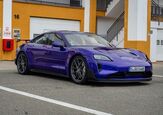








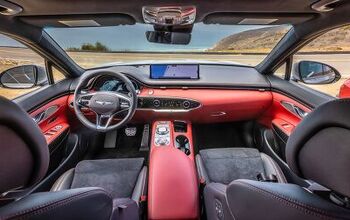
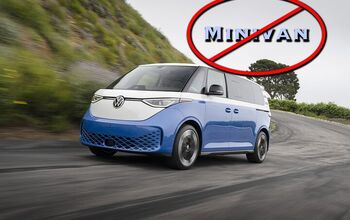
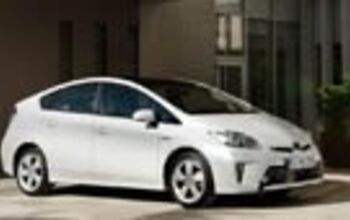
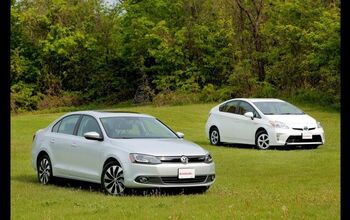
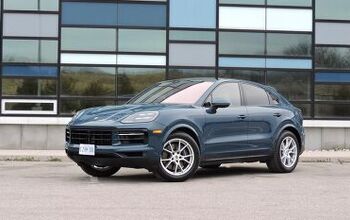
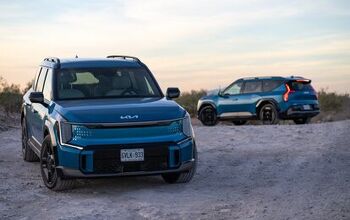
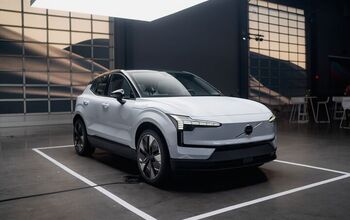
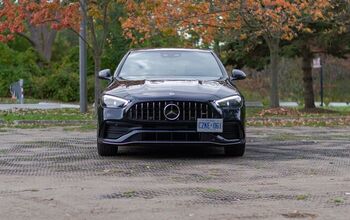

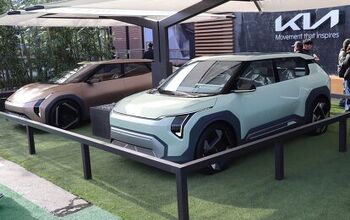
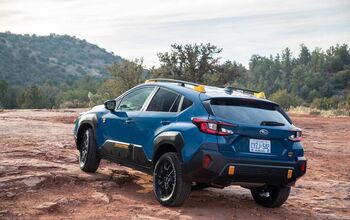


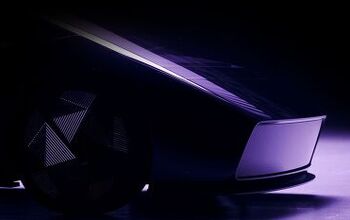
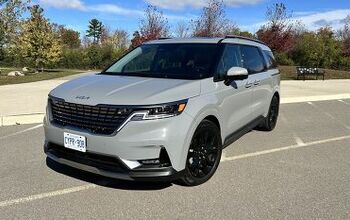
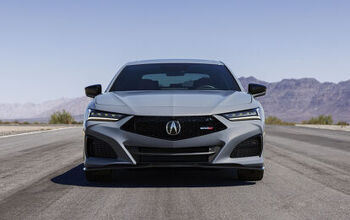

Comments
Join the conversation